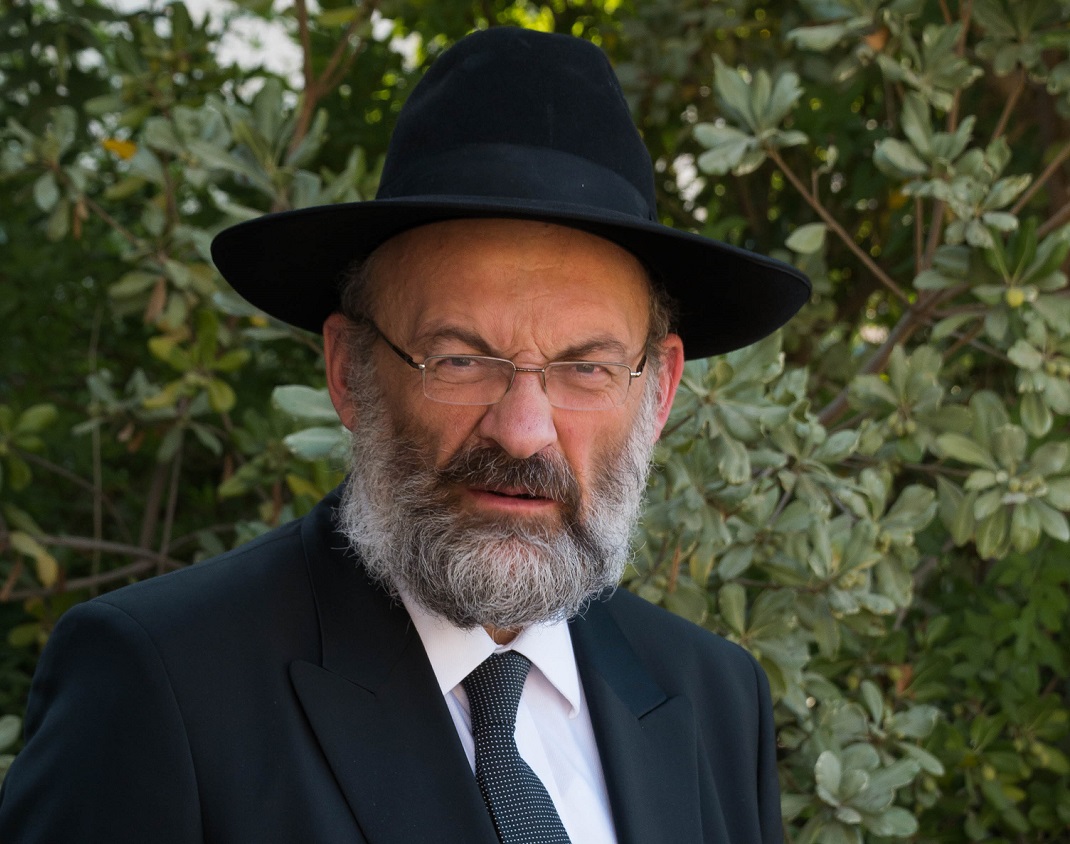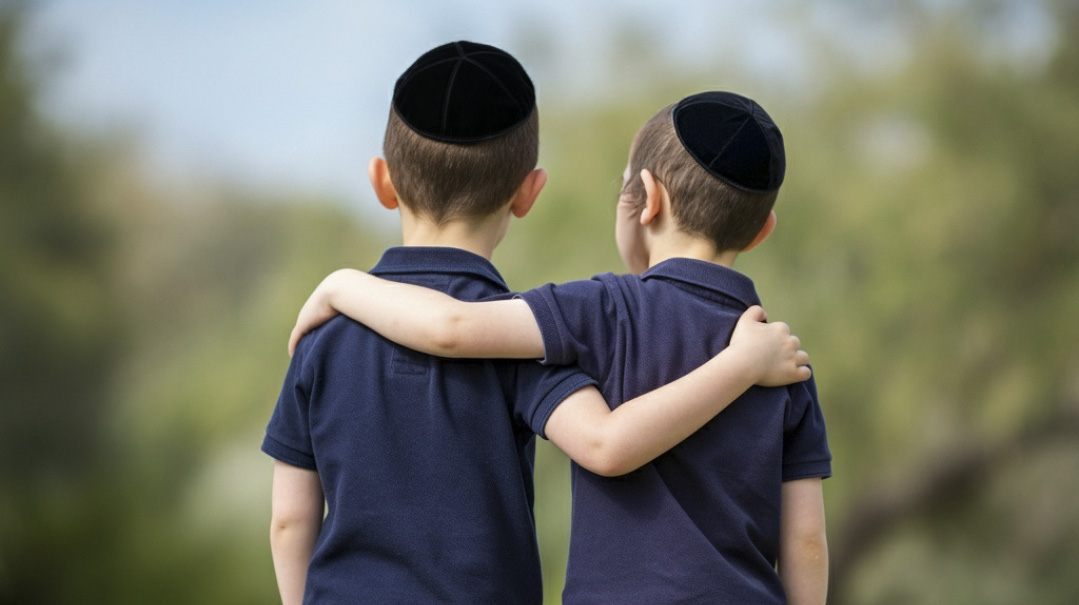Preparing for Shavuos

The main point isn’t the fact that I enjoy the mitzvah, rather that Hashem wants me to do it

AS
we approach Shavuos, we prepare ourselves to accept the Torah. Matan Torah wasn’t a one-time event; every year we receive the Torah anew. But I’ve always been irked by a basic question: How exactly do we prepare ourselves for this momentous day? We all want the Torah, and we’ll surely accept it. So what kind of preparation is necessary?
Conventional wisdom has it that Shavuos is all about accepting the yoke of Torah study, so many gear up by learning with greater intensity. For men who are obligated in Talmud Torah, this is undoubtedly part of the picture. But women and children also accepted the Torah at Har Sinai. There must be a more fundamental preparation for Kabbalas HaTorah that’s incumbent on every Jew.
To answer this question, we first need to take a closer look at Matan Torah. Matan Torah was a process. First, the entire Jewish nation said “Naaseh v’nishma,” agreeing to keep the Torah unconditionally. They did so completely out of their own volition. But then, Hashem raised Har Sinai over them, compelling them to receive the Torah.
This wasn’t unilateral coercion. Rashi in V’zos Habrachah explains that they pushed themselves under the mountain, binding their souls to Hashem as if by a knot. A knot’s purpose is to tie two items together, which necessitates limiting their freedom of movement. At that stage, Am Yisrael recognized that a true bond with Hashem required them to partially relinquish their freedom. Keeping the Torah was no longer a personal choice, but an unbreakable obligation.
Then the entire nation heard Hashem speak to them directly, and they passed away, until they were revived by the “dew of Torah.” The brief departure of their souls was the natural consequence of their total nullification to Hashem. This was the climax of Matan Torah: They became so bound to Hashem that His will completely effaced their own. Hashem’s will became all-important, to the extent that their personal desires — even their desire to live — evaporated. They soon returned to life, and their physical drives were restored. But from that moment on, their entire lives revolved around one unrivaled center: Hashem’s ratzon.
Our Kabbalas HaTorah doesn’t feature the deadly intensity of the original Matan Torah, but the essence is the same. Hashem’s will must be the focal point of our lives.
This is the antithesis of our culture. Today more than ever, society preaches that “it’s all about me.” What I want is all that matters; I can’t be expected to do anything that doesn’t appeal to me. Try as we might, this outlook permeates our communities as well. So we think the mitzvos have to be exciting, fueled by constant inspiration.
People don’t like hearing this, but avodas Hashem isn’t always an elating experience. At Matan Torah everyone died; that wasn’t exactly geshmak! Don’t get me wrong; feeling a personal connection to the mitzvos we do infuses our avodah with vitality. But the main point isn’t the fact that I enjoy the mitzvah, rather that Hashem wants me to do it. His ratzon, not our own, must be central to us.
Now we see that accepting the Torah isn’t so simple after all. We must go into Shavuos resolved to make Hashem’s will the center of our lives. But how do we prepare ourselves for a resolution of such magnitude?
It’s hard to work directly on making Hashem’s will central to us; that’s too daunting. But we can train ourselves to put aside our natural self-centeredness in our interpersonal relationships. The common denominator between bein adam l’chaveiro and bein adam laMakom is that someone else — our fellow Jew or Hashem — takes center stage. Once we allow another person’s will to outweigh our own, it will be much easier to make Hashem’s will central to us as well.
A friendship is normally based on a commonality — a mutual interest, activity, or affiliation. But the closer you get to a person, the less important commonality becomes. Your relationship with your children or spouse isn’t based on a mutual interest. If you have an unbreakable bond with someone, you care about the other person’s wishes in their own right, even if they conflict with your own.
The same is true in our relationship with Hashem. In Shir Hashirim, Matan Torah is called the wedding of Hashem and Am Yisrael. At a wedding, the chassan and kallah create a bond that’s more important than their individual preferences. That’s exactly what happened at Matan Torah. Am Yisrael chose to make Hashem’s will the center of their lives.
Let’s make one thing clear: You don’t always have to give in to the other person. That’s not the point. In chinuch, if you constantly capitulate to your children you’ll ruin them. The point is that the other person’s will should be of central importance to you. But you may have reasons why you decide it’s in no one’s best interest to actually do what he or she wants.
The converse is also true. We may do what the other person wants, but that doesn’t necessarily mean his or her will is central to us. Imagine your daughter comes home, heads straight to the kitchen, and starts rummaging around. You ask her what she’s looking for.
“A piece of chocolate,” she replies.
She’s never done that before, but there’s a first time for everything…
There’s no chocolate to be found, but you graciously go to the store, buy her a chocolate bar, come home and hand it to her. You gave her what she wanted, but is her will central to you? Did you even think for one second about her life, and ask yourself why she craves chocolate today? Maybe she’s drained, maybe she had a stressful day. Or maybe what she really needed wasn’t the chocolate, but an affirmation that you care about her.
IF we’re genuinely interested in someone’s life, we must endeavor not only to fulfill his or her will, but to understand it. We should ask ourselves: Why does my child want that? Why does he enjoy that activity? We don’t need to be psychoanalysts; we simply need to be interested in our children’s world, even if it’s not our cup of tea.
Say your son spends all his free time on the soccer field. In your world, that may be a waste of time, but think about what importance it has in his world. Maybe he seeks the excitement of the game, maybe he seeks the friendships he builds, maybe he seeks the boost of self-confidence.
Similarly, we should be interested in understanding Hashem’s will, not just performing it. Knowing the intricacies of halachah isn’t enough to make Hashem’s will central to us; we should be interested in the wisdom behind them. Some people approach Torah like a driver’s manual — full of crucial information, but uninteresting.
The laws of modesty, Shabbos, kashrus, and monetary damages aren’t just dos and don’ts. They all reveal how Hashem wants a Jew to relate to the body, to time, to physicality and society. Of course, we need to know what to do. But we should also concern ourselves with understanding and observing the principles that emerge from the halachah. Otherwise, we’re like the parent who hands his daughter the chocolate bar. We may have fulfilled her will, but she’s far from central to us.
This year, let’s prepare for Shavuos by stepping out of the limelight, and letting someone else take center stage. Let’s train ourselves to make our spouse, children, or close friends our primary focus. If we get used to that, it will be much easier to make Hashem’s will central to our lives. Rather than flee from Har Sinai, we’ll lovingly stand under it. Because once we’ve made room for Hashem, we’ll see that the mountain looming over our heads isn’t a peril, but a wedding chuppah. —
—Prepared for print by Rabbi Eran Feintuch
(Originally featured in Mishpacha, Issue 1062)
Oops! We could not locate your form.







